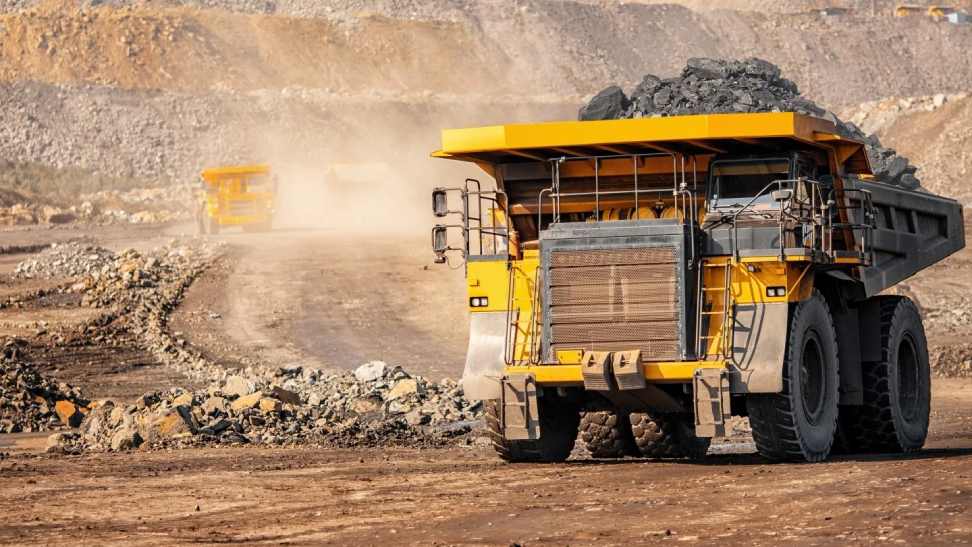The foundation of modern infrastructure and everyday products heavily relies on nonmetallic minerals. From the sand in concrete to the limestone in toothpaste, these minerals are crucial for construction, agriculture, and various industries. This begs the question: is mining and quarrying of nonmetallic minerals a good career path?
The Allure of the Industry:
- Job Security: The demand for construction materials and essential products ensures consistent job availability.
- Competitive Salaries: Jobs in this sector often offer competitive wages, with some positions exceeding the national average [1].
- Diversity of Roles: The industry encompasses various roles, from equipment operators and geologists to environmental specialists and engineers.
Demanding Work Environment:
- Physical Requirements: Many positions involve physically demanding tasks like operating heavy machinery and working long hours outdoors in potentially harsh weather conditions.
- Safety Concerns: Mining and quarrying inherently involve inherent risks like dust exposure, potential cave-ins, and working with explosives. Stringent safety protocols and adherence are crucial.
- Environmental Impact: Mining activities can have negative environmental consequences. Land reclamation and responsible practices are essential to minimize the impact.
Exploring Career Options:
- Equipment Operators: Operate heavy machinery like excavators, loaders, and haul trucks to extract and transport minerals. They require technical skills and the ability to work independently.
- Geologists: Assess the quality and quantity of mineral deposits, ensuring efficient extraction. A strong background in earth sciences and analytical skills is necessary.
- Blasting Specialists: Handle the safe handling and detonation of explosives for controlled rock fragmentation. This role requires meticulous planning, expertise, and adherence to safety regulations.
- Environmental Specialists: Monitor the environmental impact of mining operations, ensuring compliance with environmental regulations and implementing sustainable practices.
Factors to Consider Before Entering the Field:
- Personal Interests: Individuals who enjoy working outdoors, operating machinery, and have a mechanical aptitude are well-suited for this field.
- Physical Fitness: The physically demanding nature of the work requires a high level of fitness and stamina.
- Risk Tolerance: The inherent risks associated with mining necessitate a strong awareness of safety protocols and the ability to work in potentially hazardous environments.
Educational Qualifications:
The educational requirements for various positions within the nonmetallic mineral mining and quarrying industry vary.
- Entry-level positions: Often require a high school diploma or equivalent, with on-the-job training provided for specific equipment operation.
- Technical roles: May require an associate’s degree in related fields like mining technology, engineering, or geology.
- Advanced roles: Geologists, environmental specialists, and engineers typically possess bachelor’s degrees in geosciences, environmental science, or relevant engineering disciplines.
Career Progression:
Career advancement opportunities exist within the industry.
- Equipment operators can progress to supervisory roles or specialize in operating specific machinery.
- Geologists with experience can move into management positions or consulting.
- Environmental specialists can gain expertise in specific areas like reclamation or pollution control, leading to supervisory or managerial roles.
Industry Challenges and the Future:
- Fluctuations in demand: Economic downturns can impact the construction industry, leading to reduced demand for minerals and potential job losses.
- Sustainability concerns: The industry faces increasing pressure to minimize its environmental footprint. Implementing sustainable practices and adopting new technologies are crucial for the future.
In Conclusion:
Mining and quarrying of nonmetallic minerals offer a stable career path with competitive salaries. However, the physically demanding nature, potential safety hazards, and environmental concerns require careful consideration. Individuals with a strong work ethic, a passion for working outdoors, and an understanding of the risks involved can find success in this industry.
Additional factors to explore:
- Focus on technological advancements: Automation and the use of advanced machinery are transforming the industry. Staying updated with these developments can enhance career prospects.
- Importance of safety: Rigorous safety training and adherence to protocols are paramount in this industry.
- Environmental regulations: Understanding and adhering to environmental regulations is crucial for ensuring the sustainability of the industry.
Overall, a career in mining and quarrying of nonmetallic minerals can be rewarding for individuals who are physically fit, possess a strong work ethic, and prioritize safety. Carefully weighing the challenges and opportunities combined with continuous learning and adaptation will pave the way for a successful journey in this field.
Feature image source:- https://tinyurl.com/uyatw4wk

